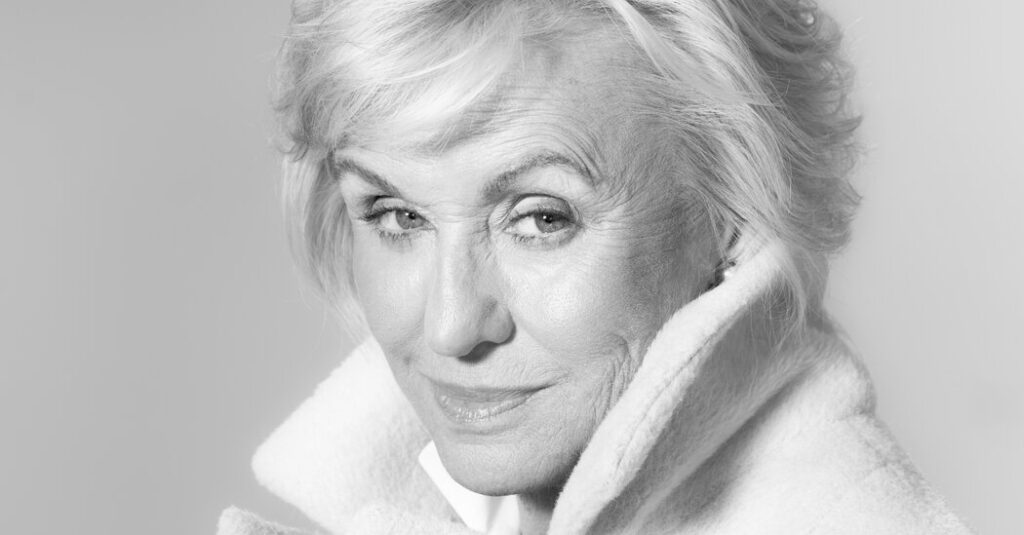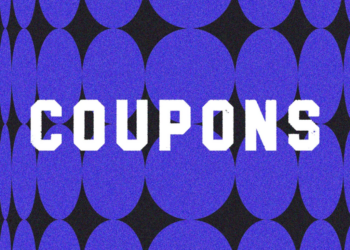The lavish expense accounts. The power. The shoulder pads! The days of the media elite in New York are long gone, but there is perhaps no sharper observer of politics and culture than one of that period’s most prominent figures: Tina Brown. In the 1980s and ’90s, she was the editor in chief of Vanity Fair, pioneering a now-recognizable mix of gossipy Hollywood pieces, high-society scandal coverage and hard-hitting reporting on Washington and wars around the world. She then went to run The New Yorker and was the first and only woman to hold that job. There she hired several great talents, including David Remnick, who went on to succeed her when she left to start the ill-fated monthly magazine Talk with Harvey Weinstein (a venture that folded after two years).
Brown was able to then transition from the glossies to the less rarefied world of the internet, launching The Daily Beast in 2008. She also wrote books about one of her enduring fascinations, the royal family, and about her time at Vanity Fair. She’s now brought her stinging analysis of politics and culture to Substack, with her deeply enjoyable and dishy newsletter, “Fresh Hell.” (Recent headlines include: “The Inside Story on How King Charles Pulled the Plug on Andrew” and “Why Murdoch Doesn’t Give a Toss About Trump.”)
Brown’s ability to reinvent herself again and again, without losing her sensibility, is something I’ve long admired. And at a time when there is so much change and uncertainty in our media and our politics, I thought it would be grounding, and fun, to sit down with someone who has the long view — and a lot of stories. Brown, now 71, did not disappoint.
Subscribe: Apple Podcasts | Spotify | YouTube | Amazon | iHeart
I want to start by reading some of you to you. Here are your descriptions of some folks we all know: Mark Zuckerberg, “Meta’s slippery salamander”; Prince Harry, “the ginger whinger”; Lauren Sanchez has “proved that landing the fourth-richest man in the world requires the permanent display of breasts like genetically modified grapefruit.” And you describe our president as “Tyrannosaurus Trump.” How do you come up with these acid descriptions? Something happens when I hit the keyboard, and because I’m writing this Substack, I’m in a different zone — I’m my diary self. I don’t feel I have to have restraint anymore, which is very exciting to me as a writer. I think of myself in the third trimester of my life rather than the age that I am. I feel liberated. And it’s great not to be in charge of lots of people, either, because I don’t have to worry, well, what happens if I want that person to advertise, or if I want to put that person on the cover. I can just let rip. I think it’s needed, because there’s so much pussyfooting and mealymouthing that’s been going on in writing for the last 10 years.
You became the editor of Vanity Fair at the age of 30, in 1984, which is very sobering for those of us who did not get to such august heights so young. There’s a lot of nostalgia for that era now — books, articles, podcasts. Do you miss that time? Well, you’re absolutely right about the nostalgia. I wrote my book “The Vanity Fair Diaries” seven or eight years ago, and people keep coming up to me and saying: “Oh, I’ve been reading it. I feel so nostalgic for that period.” I think it’s because this was when work was so much fun. It’s like all the fun has come out of work. Because now for the journalism-media world, it’s all about: How do you get a platform that anybody will look at? How do you raise the money for it? What can you say that some sponsor doesn’t want you to say? This was a period that I lived through where it was this hell-for-leather pursuit of great stuff, and I had a ball doing it. And the offices of Vanity Fair were just the HQ of interesting, adventurous talent. The same at The New Yorker. I realize now how terribly lucky I was at The New Yorker to be sitting there with people like Art Spiegelman and Adam Gopnik and David Remnick and Jane Mayer and all these wonderful writers arguing about what we were going to say in the pieces, whether it was accurate, whether it was fair. All these things that we talked about were nothing to do with: Is our business going up in flames? That’s unfortunately what the newer generation has experienced ever since they’ve begun their careers, which is very, very sad.
I have a theory for why there is so much nostalgia: Even as the internet has democratized the way that people get information and who gives information, people are craving a bit more authority. People want a guide through the muck. Of course they do. I mean, the gatekeepers have gone. Everyone goes, Yes! As if the gatekeepers were some kind of terrible inhibition to doing anything good. The gatekeepers were also the tastemakers. Lacking those gatekeepers now, it’s just this big blob of stuff and dross that comes careening at you, and you don’t know where to find the good stuff. I think that’s the biggest problem of our time: There is brilliant writing out there. But finding it is like the needle in the haystack. I’m always feeling, What have I missed? Because somebody will say, Oh, did you read that great piece? It’s like, Where? I’ve got a thousand Substack things, I’m reading social media, I’m reading the old-guard stuff, but my head is exploding. And unfortunately what it’s leading to is a lot of people checking out. So it’s a very demoralizing time. I’m always being asked by young people, How do I get into journalism? Often I say you should go to India, because India, in fact, has a very vibrant literary culture.
I can’t believe your advice is go to India. [Laughs] Yeah, it’s not popular. When I say that, you do see the light fade from the eyes.
I want to get back to your early career a little later, but you are an authority on some pretty current things that had their roots in that era of the ’80s and ’90s. One of them is Jeffrey Epstein. [This interview took place before Congress released new batches of Epstein’s emails.] You knew Jeffrey Epstein. You knew Ghislaine Maxwell socially. In your book “The Palace Papers,” you described her as omnipresent in the social scene. How did you understand their relationship? I didn’t understand their relationship at the time because you never saw Epstein with her, actually. I think Epstein was slightly in her rearview mirror when I knew her. I didn’t really know about that background with Epstein until I read about it later. I think that she was an abused figure herself. Her father, Robert Maxwell, was a really terrible, tyrannical guy. A press baron and a crook — but a crook who was the king of the world for a time. So she was raised in that atmosphere of the glorious press baron, only to find that in fact he was a crook. She had that sort of trauma. I had this great story in my book that I found when I was reporting “The Palace Papers”: She took somebody up to her room when she was a little girl to show off her room, and her hairbrushes were laid out on the counter, and she said, “Daddy lets me choose one when he wants to beat me.” He was asking her to curate her own punishment. [In Brown’s book, she recounts this slightly differently, with several items and a hairbrush laid out on the counter.] I think with Epstein, she was mad about him. And the only way she felt she could get into his good graces was to participate in — and in the end, curate — his abuse of young women. But you never would have known it from seeing her work those parties. She deserves to rot in that prison for a very long time.
Do you think she will? Well, it’s very interesting. I wouldn’t be at all surprised if on his way out Trump does pardon her, when MAGA no longer counts. But I think if he did it now, there would be a real uproar.
In the early 2010s, when you oversaw The Daily Beast, you ran one of the first national series on Epstein, and later noted that those stories didn’t really stick at the time. They didn’t. What changed, of course, was #MeToo. When Julie Brown did her brilliant series in The Miami Herald, that was after #MeToo, and people began to be much, much more focused on abuse by powerful men of young women. At the time that we published, Epstein wasn’t that well known. It was kind of an insider social story — some guy on the rich circuit nobody really knew. It shows how times have very much changed.
One of the stories in that series was headlined “Epstein’s Society Friends Close Ranks.” Someone in the piece said: “A jail sentence doesn’t matter anymore,” and “The only thing that gets you shunned in New York society is poverty.” Just incredibly callous. It is true. I was invited to a dinner after he had been convicted. A publicist called me in the office at The Daily Beast and she said, “Tina, I want you to come to this great dinner at Jeffrey Epstein’s house, and the other guests are Charlie Rose, Woody Allen and Prince Andrew.” Lloyd Grove, who was a journalist at The Beast, reminds me whenever I see him that I yelled into the phone: “What the hell is this — the Predator’s Ball?” I was outraged that she hadn’t seemed to have read our pieces. I said: “I’ve printed pieces about this guy. No, thank you very much. I decline. I don’t want to have dinner at Jeffrey Epstein’s house.”
One of your other specialties is the royal family. Prince Harry and Meghan Markle are trying to make their own way in the world. They’ve had a rocky time being entrepreneurs. Do you think they have anything to offer anymore? It’s very sad what’s happened to them. I have never seen anybody in professional life make as many mistakes as Meghan has, and unfortunately Harry is not the brightest bulb, either. He thought that Meghan would be his guide in the big wide world beyond Buckingham Palace, and it turns out that Meghan makes one terrible professional decision after another. And now they’re pariahs everywhere, it seems, which is a very difficult situation for them because America was supposed to be the place that paid the bills. What is sad is that Harry’s very good at being a prince. He’s charming, he’s upbeat, he’s attractive, he makes people happy when he walks into a room, he’s very good with young people. You could send him around the world and he’s always going to be welcomed and appealing. And I think he has realized too late that he was born to be a prince. And now he’s essentially just some guy doing P.R. gigs while Meghan tries out her latest cooking idea or whatever. It looks more and more as if Harry’s best decision would be to find a way to come back to England. I’d like to see a way for him to make amends with his family, but it gets harder and harder as the years go by. I think that William is going to be the decider of that, and I think William has a very tough view of the whole situation, which is that the betrayal of Harry is not something that can be remedied.
Why has the royal family been an enduring interest of yours? When I write about the royals, it enables me to write about a lot of other things too: class, British society, celebrity culture. The other thing that’s very interesting to me is the ongoing human drama of real people with real feelings and hurts and pains and joys, in tension with a monarchical system that is a thousand years old. They are as human as you and I, but they’re in this cage and somehow have to find a life inside it. You could almost argue it’s too cruel a predicament for modern humans.
I want to get back to your time editing the big magazines. Anna Wintour, the great Vogue editor, is stepping down. She was there while you were at Vanity Fair and The New Yorker. You’re both women who’ve broken a lot of barriers, contemporaries at the time. How do you see her legacy? Anna’s really remarkable. She went from being the editor of Vogue to being the connective tissue for the entire company. Hats off to her. It must have been a bit nightmarish to be staying in that same environment as it changed and changed and changed. The whole question of a magazine company like Condé Nast has changed so utterly from the times when we were there, in the great days when S.I. Newhouse Jr. owned it. We were so lucky to have him, working in this private company where we were allowed to get on with our work and our creativity. I think a lot of her time now is spent on corporate hell. So, she must love what she does.
Do you regret leaving Condé Nast when you did? Her legacy is very much cemented. You could have had that, too. Do I regret leaving The New Yorker to go and work with Harvey Weinstein? I don’t think that was a brilliant career move! I certainly regret that. But I’ve also had a very interesting life since. I’m a very restive, creative person, and there’s no way that I would have ever stayed to be the symbol of Condé Nast, no.
You’ve touched on it in some of your writings about that period, and knowing what the ’80s and ’90s were like, I imagine it was pretty sexist. Well, my major frustration — and it was sexist; I didn’t think at the time, but I now realize it — was that as great as S.I. Newhouse was as a boss, it was a very patronizing relationship. He was not interested in my views on how the business should be run. I thought we should have a production company. I thought we should be doing festivals, conferences, live events, and I laid out this whole thing. And he just looked at me and said: “Stick to your knitting, Tina. You’re an editor.” I was just so bummed by the whole thing. One of the things I find exciting at the moment, actually, is the fact that Bari Weiss, who created The Free Press and sold it to the Ellisons for $150 million, has gone on to run CBS [News]. That’s just so great that she was able to be heard as someone whose business concept was right and correct and interesting. She shows the difference in the eras.
We should say that your Substack has been reprinted on The Free Press. It has. I’m an admirer, actually.
I was very curious about what you would make of her. I think Bari saw the rise of irritation with woke culture and she rode it to the top. She created The Free Press around that irritation, and did it very well. She has a bigger challenge now that the Trump world has turned that whole concept into something so much more ugly, frankly. And I think that’s going to be a real challenge for her, because now she’s been put in charge of CBS. What is she going to do when the first call comes from the White House telling her they hate the story that’s in preparation, and she is supposed to be defending journalism? I think that’s going to be very, very difficult. If I’d been advising her, I would have said, “Take the money for The Free Press, but don’t get involved with CBS.” But she didn’t ask my opinion on that.
Your Vanity Fair successor, Graydon Carter, wrote his memoir recently. He said that the first two years there were pretty dreadful in part because “the Tina Brown allies who had been left behind were deeply hostile and subversive,” and that when he arrived “there was almost nothing lying around that I thought was worth publishing.” Were you surprised to read that? Actually, I didn’t read it, because I’d heard so much about it that by the time I got it, I didn’t want to read it. Look, I left behind a whole team. Whether they were subversive or not, I have no idea. I had nothing to do with any of that. As for there being nothing lying around, I’m surprised to hear that, because there were a lot of great pieces that were left behind. But he did a great job himself. I don’t know why he remains weirdly bitter about me.
He wrote that he’d heard a rumor that the style director of the magazine would go to your apartment to help style your clothes for the day. You bet she did.
Is it true? She’d come over every morning? No, not every morning! If I was going to go to some big event, I would certainly ask her to come over and help me. Why wouldn’t I? She had much better taste in clothes than I did.
Why do you think he brought these things up? It’s the sexist way of looking at women. It’s a condescending myth that makes men feel better sometimes, because we’re very threatening. And therefore, my success had to be wrapped around with a belittling sort of Rockette imagery. What used to amuse me really was when I got awards as an editor, the citations were always so much sillier than the citations that men would get. It would be like, “Tina Brown is the buzzy, irreverent editor.” I just published a 30,000-word piece about, you know, an El Salvador atrocity, and I’m still “buzzy,” as if I’m some kind of cancan dancer.
I’ve seen you say that you just hate that word “buzzy.” It’s a silly word. The whole thing about buzz is people are talking about what you’ve written. Isn’t that what we all want? You want to land into silence? You want to publish something into a cosmic darkness? So I sometimes sign my letters, “The erstwhile queen of buzz.”
What’s your take on this current media moment with very fraught relationships between media organizations and people with money? The L.A. Times; The Washington Post; David Ellison, the son of Larry, one of the richest men in the world, who is now in charge of Paramount and CBS. Why do you think people like this get involved in journalism? I am so bored, frankly, with the über-rich thinking that just because they’re rich, they know everything about everything. They’re so disrespectful of our business. They have absolutely no respect for us. That is my major beef with the digital barons. I am probably burning with resentment about it at all times, actually.
Who is the most odious person in the media right now? Oh, God, so many. I’m so disappointed in Jeff Bezos. I saw him as a big savior of The Washington Post, and it seems like he’s just totally flipped. Tucker Carlson really mystifies me. He worked for me at Talk Magazine.
He did? Yes. My two political correspondents were Jake Tapper and Tucker Carlson. Tucker was a really good writer. I would have certainly had him at The New Yorker. He had such a wonderful gift of turn of phrase. He had a satirical eye. He was wonderful. And then something strange happened. He had a head transplant and turned into this kind of frothing lunatic. I don’t understand what happened to him. I think what has shocked me really about this era is how fast people can change.
Speaking of politics, that brings us to a big earthquake in your adopted city, New York: a new mayor, Zohran Mamdani, who has very much scared the plutocratic class. It’s wonderful that he’s done that. They have been terrified.
What does his rise say about how people are feeling about the elite? It was a battle cry that absolutely needed to be sounded. In the last few years, we have been so bullied by the superrich. There’s a sense that the rich are the ones who have the voice in every debate, whether it’s about academia or the way the nation is run or how we live our lives with the tech revolution. And people have felt, I think, more and more hopeless about the enormity of the wealth and the impossibility of fighting it. Mamdani has shown how to get your fight back. It’s very inspiring. Money doesn’t buy everything. All that money went into stopping him and he still won. And you don’t have to like his ideas to be glad of that. I’m very glad of it.
What do you think happens next? I think we’re underestimating the power of humanity. That’s what Mamdani showed. We’ve tended to think this is the inevitable direction. A.I., the über-barons will dictate how we’re all going to live, and everybody else is a peasant. All of these things have become very depressing. But maybe humanity has a bit more juice in it than they anticipated. Things can change very, very quickly in America. It’s one of the reasons I love living in America. It’s an exciting place. The whole mood can change overnight. All of a sudden, people will just turn around and say, Look, I don’t want you deciding how my life is going to go. So I’m feeling quite optimistic at the moment.
Last question: What should the headline for this interview be? “Dinosaurs Still Rule the Earth” — question mark.
Oh, no, I think exclamation point at the very least. You’re an exclamation point for sure. Well, thank you, Lulu.
This interview has been edited and condensed from two conversations. Listen to and follow “The Interview” on Apple Podcasts, Spotify, YouTube, iHeartRadio or Amazon Music.
Director of photography (video): Tre Cassetta
Lulu Garcia-Navarro is a writer and co-host of The Interview, a series focused on interviewing the world’s most fascinating people.
The post Tina Brown Thinks the Über-Rich Have It Coming appeared first on New York Times.



